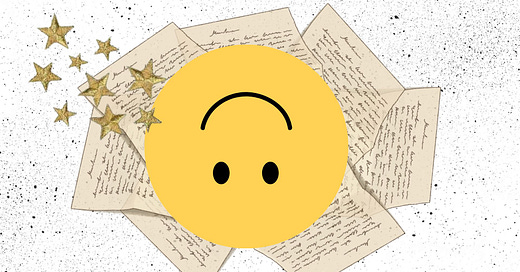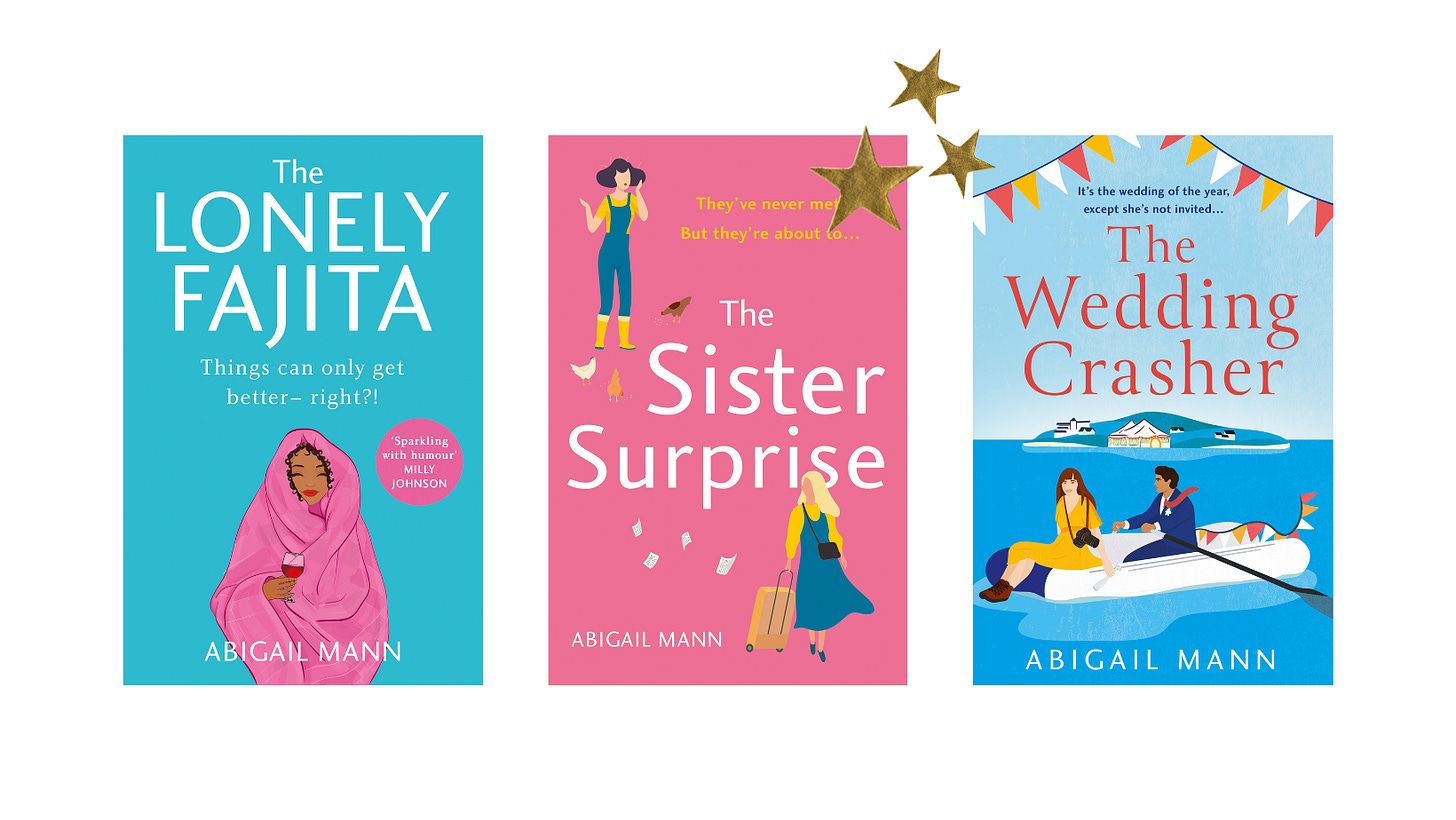How not to be a dick as a new author
and why it's good to remember that what goes around, comes around
I need to tell you about something that I became aware of recently. If you write in any capacity, I’m sure it’s happened to you too. The problem is, no one is talking about it.
A writer that I mentor recently told me that she’d read my first novel, which is always something that fills be with low-key anxiety. Will they think I’m worthy to be a writing mentor? Can I talk the talk and walk the walk? Even though it wasn’t her usual genre, she loved it, which I see as an even greater compliment. ‘I’ll get a review up on Goodreads this afternoon,’ she said, which wasn’t necessary but shows she is a good egg. Of course, later that day I crossed the Goodreads threshold to read it, forgetting that the site is akin to walking across a motorway with your eyes closed: you might be fine, but you might get run over by a jackknife lorry.
Her comments were generous and thoughtful. It was the review underneath hers that caught my attention, not because of how many stars they had given me, but because I recognised the person who had posted it. I don’t know them very well, but based on the writing communities I am involved with, I had come across them before. They write, too. They have been published. And they made an effort to point out each reason they disliked my book.
I truly don’t have a problem with people writing reviews, because it isn’t my business. I’ve written about this before. Readers are the reason I write at all and no one owes me anything, but I do think there’s an issue when people who would ordinarily be your colleagues take a public dump on your work.
I read an article from the author
in this quarter’s issue of Backstory (a wonderful zine-like literary magazine) and in it she writes about the pros and perils of reviews.‘I steer clear (mainly) of Goodreads, as it is really for readers, not authors.’
This is is exactly the point. At some point in your writing career, you have to pick a side. If you really see yourself as an author, you can’t simultaneously occupy the space of a reader and expect this not to be a problem.
I get it, I do. When I first started writing fiction with a serious ambition to be published one day, I read more and read far more critically than I ever did before. I wanted to see how my manuscript might measure up to those already on the shelf—what was it similar to, what was I aspiring towards, and what didn’t I want my book to be. The more involved in the industry I have become, the more I have picked up on the nuances of genre expectations, of writing that serves a specific reader, even if that reader isn’t me.
You never know who will be part of your writing community. As time goes on, the more authors I have found in my orbit. Authors need other authors. We need each other for motivation, for long voicenotes, for moral support when we’re trying to pitch a new idea or get through edits that are unexpectedly tough. We attend each other’s book launches, we point our friends towards their books, we offer advice on parts of the industry we might have navigated before. If we can’t attend a panel or run a workshop, we’ll offer names of other authors who would be fantastic replacements. We have, or will, go through the same things. A rising tide floats all boats, or something like that. There is room for everyone.
If you’re a writer that criticises one of your own, it will bite you in the arse eventually. Even if you’re at different points in your journey, it comes across as weird, unnecessary, and rude. No one likes an armchair expert.
If you write, you can relate. The process of writing a book is hard enough as it is. We’ve all had novels that we’d have edited again, if we had the time. We like to think that our craft gets better with each manuscript we write. If I’m ever unsure about a book I’ve read, I’ll probably give that author the benefit of the doubt. A lot of people won’t agree with me, I’m under no illusion of that, but the question is, how do you want to use your voice? Are you amplifying other authors, or are you knocking them down? Personally, I only ever leave five-star reviews. If I really didn’t like it, I won’t say anything at all. I’m not claiming my approach is perfect, but if I can help an author get a leg up in any way, I will.
Not everything has to be public. Not everything has to be content. If you really want to write reviews, there are other places you can put them.
At the end of the day, if you’re an author, or want to be, you have to back yourself. When I see an author leaving a review on someone else’s book that is middling, cryptically stinging, or outright harsh, here’s what I think: you value your profile as a reader more than you see yourself as a writer.
Writers are born from bookish children, the kind who tore through series, who chronically reserved books in the library, and who read under the covers after lights out. There are whole factions of the internet dedicated to bookish adults who are passionate about reading and the authors who pen those stories. Many of them go on to write themselves, to read, to recommend, to fangirl over their contemporaries. When you’re obsessed with books, it’s easy for our echo chamber to rebound the idea that everyone is writing and therefore our opinion will be lost in the void, but the community is still small. Unless you’re a writer who is actually dead, or have the profile of Sarah J. Maas, it’s likely that those reviews will filter back to the source.
So, back to my first point. Writers, don’t be a dick. As your mama said, if you haven’t got anything nice to say, it’s probably best that you don’t say anything at all, or, at least not publicly.
About the author:
Abigail Mann is an author, book coach, and writing mentor. She is currently editing her fourth novel for HarperCollins and has a thing for sharp contemporary literature with a comic edge. Abigail coaches with the London Writer’s Salon, is a Fellow with the Royal Literary Fund, and privately mentors writers who need to cloud bust their plots, clean up their submissions, or reach a fiction milestone. Her other internet home is here.










Leaning in but feeling more and more sick about our Substack book. It’s impossible to write the bible of Substack but we have written a very helpful book I just hope it’s seen that way. Sorry about your experience! I’ve just written the community guidelines for the summit - “we must always be kind”
I’m the same, I only leave 5 star reviews, I know how hard it is, how harsh it can feel. We need to be supportive.